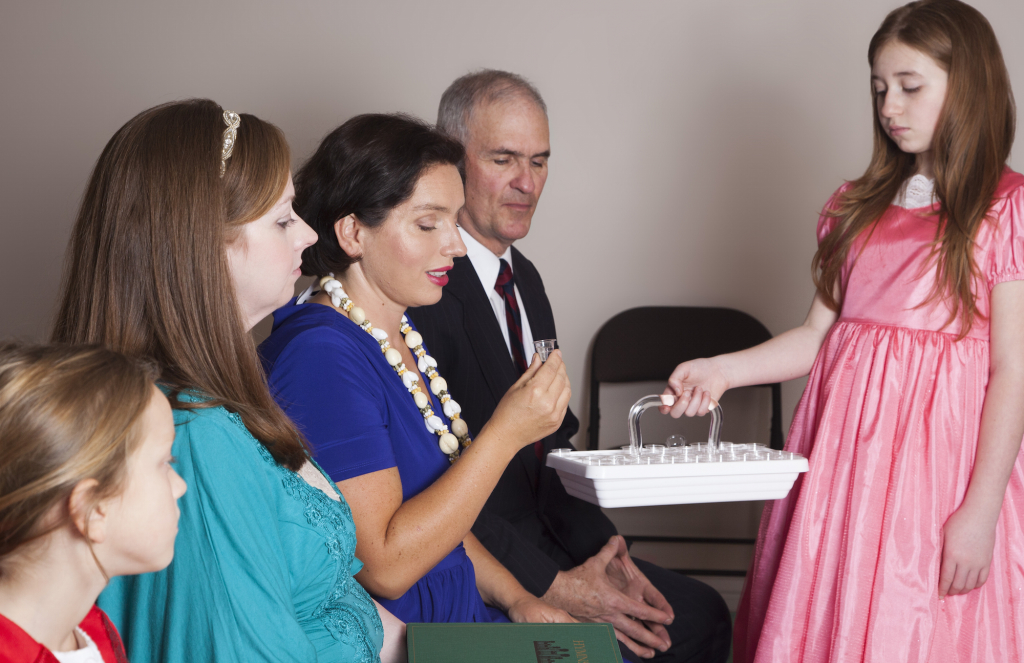
This is a photo-illustration of a 12-year-old Mormon girl passing the sacrament to the congregation. Photo by Daniele Vickers
Honoring our past,
Envisioning our future
On a Sunday when I was ten years old, I went to a different ward than my home ward in Provo, Utah. I was sitting in the back corner of the chapel with my mom and cousin watching a baby blessing. When the young boy brought the white-plastic tray of Grandma Sycamore’s bread, I was far enough away from the next person on the row that I had to stand up between rows of folding chairs. I walked the tray over to the next person who wanted to take a small piece of bread in remembrance of our Savior. For some reason, passing the tray down an aisle of chairs was allowed, but because of my gender, I was not allowed to walk from the front of the church to the back holding bread and water. That was the only time I was ever permitted to hold a sacrament tray for someone else, and it sticks out in my mind even several years later.
The first time I noticed the gender inequality in Mormonism was because of the sacrament. When I was eleven, my best friend was a boy in my Valiant 11 Primary class. However, when he turned twelve in December, something changed in our relationship. Each Sunday, he was given the authority and power to help perform a symbolic atonement. In his white shirt, missionary haircut, and tie, he became a representation of the sacrament. When I turned twelve four months later, I was merely moved to a different Sunday School class. Because my friend—whom I had studied math, played soccer, and watched endless Disney movies with—suddenly was given a new authority that I could never have, our friendship changed. Before I knew about the words for “inequality,” I knew what it could mean in my life. The power to hold a tray symbolized something so much more than walking up and down an aisle.
Now, as a seventeen-year-old, I know the words. My first life experience with inequality and not being able to do something “because I’m a girl” was in my church. I don’t think things should be this way. When I look at my Savior—who is so much more than the represented bread and water we partake of each week—I see someone who showed what true, equal love looks like, and I do not think that His church is where I should have learned about inequality for the first time.
I promise I can balance a tray. As a twelve-year-old, all I wanted to do was go to Young Women’s and talk about Jesus. My childhood faith was unscarred by knowledge of words and the pain of history. And when I walked up and down the small aisle between folding chairs, all I wanted to do was serve. Girls can balance trays too. We can serve in the same ways our male peers can. When it comes to being a servant of our Heavenly Parents, there should be nothing that a girl cannot do.





